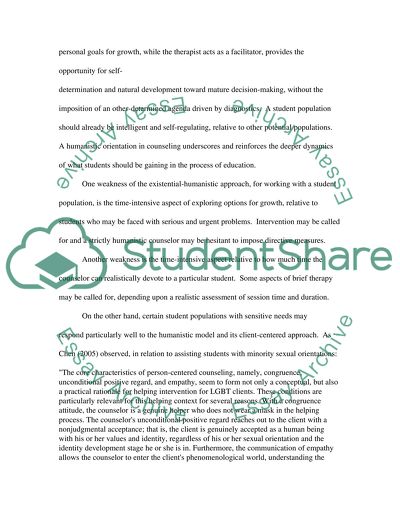Existential Humanistic Approach Essay Example | Topics and Well Written Essays - 500 words. Retrieved from https://studentshare.org/psychology/1531531-existential-humanistic-approach
Existential Humanistic Approach Essay Example | Topics and Well Written Essays - 500 Words. https://studentshare.org/psychology/1531531-existential-humanistic-approach.


